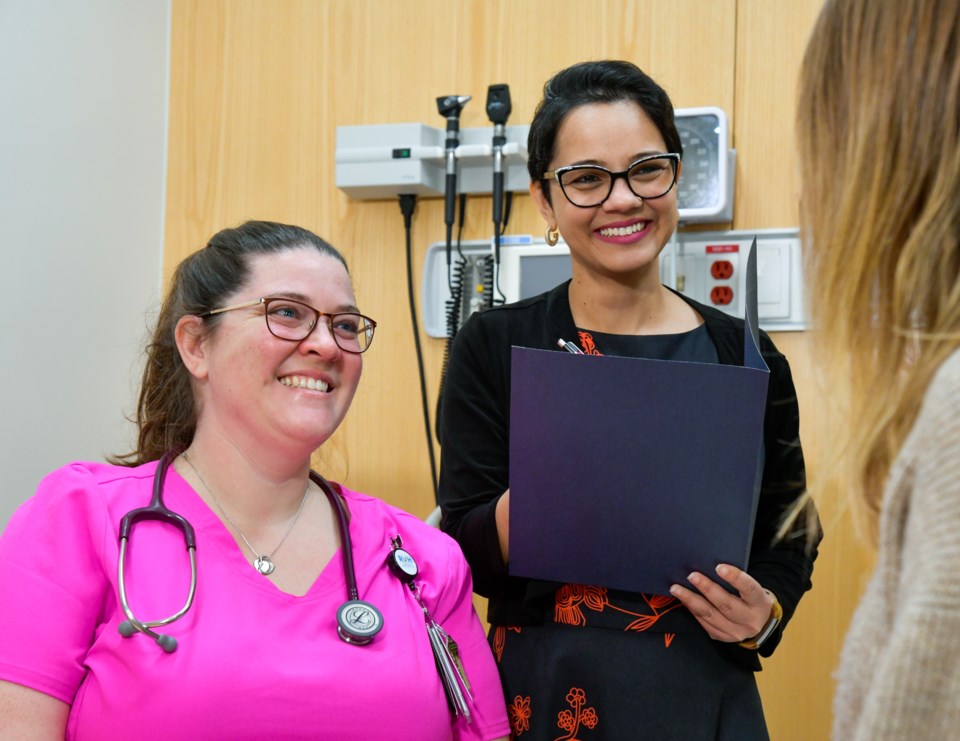Patient-centred research has become a growing aspect of what the Royal Victoria Regional Health Centre (RVH) does in the community, creating another element for the local workforce.
The Barrie-based hospital became formally involved in research less than a decade ago on the heels of clinical research that had been taking place.
The initiative has since developed into one of the most active research departments for a community hospital in Ontario, says its director, Jesse McLean.
“For a community hospital, we’re definitely one of the leaders in conducting clinical trials for our cancer patients,” he says. “We do bedside research really well. I like to call it applied research.
“The reason why we conduct research is because we recognize that sometimes the research from our academic counterparts, the academic hospitals, may not necessarily apply at a local level or they may not be practical or feasible or even cost-effective," McLean adds.
McLean takes pride in the scientific and methodically rigorous approaches his team takes to conduct clinical trials and homegrown research and the partnerships formed to assist the hospital and its patients.
Scientific research is not restricted to universities and hospitals in large centres, McLean says.
The staff of 23 draws from its health library to explore gaps in science, there’s also a research ethics board. In addition to the research office, there’s a team that focuses on clinical trials in oncology, which predates the research office.
The focus is on treatment and recovery, or patient-reported outcome measured by exploring new devices, drugs and processes brought in to help patients.

Inspiration, he says, is drawn from the doctors and nurses who do research “on the side of their desks” as they look for solutions in their daily work.
The RVH cancer centre has been conducting cancer clinical trials for two decades. That ultimately led to the formation of a formal research office in 2015, and then the RVH Research Institute in 2016.
“The goal of the research office is to support health research (in all its forms) across the hospital and within our community,” says McLean.
The hospital’s “pink zone,” he says by way of example, was developed in response to staff’s concern about the burden at the RVH emergency department.
The “pink zone,” or minor conditions booking portal, allows people with minor limb ailments, such as a sprain, strain, a simple break or those exhibiting cold or flu symptoms, to pre-book same- or next-day appointments.
Its intent, when it was created as a pilot project, was to take some of the burden off the emergency department. Those needing attention for those other conditions don’t have to endure the long wait times the emergency department is known for.
The research department is run by a research manager who oversees the planning, co-ordination and execution of the projects, manages the team, secures funding and ensures the projects follow the necessary regulations.
As new technologies emerge, they will streamline the research processes.
The clinical research associates monitor the research and ensures it is done well and follows good clinical practices, as well as the necessary guidelines. Typically, they have a bachelor’s degree and a Society of Clinical Research Associates (SOCRA) certificate after completing the Certified Clinical Research Professional (CCRP) program.
“The digital health tools for them, too, are becoming more prevalent,” says McLean.
And change is constant. COVID led to more de-centralized trials and leveraged tele-health, he says, meaning not as much of the work is being done in-person.
The clinical research associates work hand-in-hand with the study nurses, who concentrate on the newest health information. They’re the ones who learn about and understand the latest device or drug, knowing how the trial will run and facilitate managing the patient care aspect.
The research-and-development specialist is focused on developing and improving medical products, procedures or treatments by collaborating across various departments to innovate and bring new health-care solutions to life.
McLean expects that role to expand to include greater interaction with emerging technologies like artificial intelligence (AI), biotechnology and robotics. He also expects those specialists to increasingly collaborate with health care, technology and bio-engineering start-ups to prototype and scale new health-care solutions.
The knowledge translation specialist is a new role to bridge the research findings to the bedside, allowing it to be implemented in the hospital.
There is also a summer student research program using undergraduate or medical students, many of whom are from the Barrie area.
“(The jobs) are ever-changing in the way health care is changing all the time,” says McLean. “We aspire to be a health sciences centre and with that will probably come more roles that are science-driven.
“Processes that we do here … not only RVH could do, but another hospital in or area or other areas can also do so that’s where we like to generalize our research across the spectrum so we can publish for the world to see.”
The department publishes about 25 peer-reviewed articles per year in medical journals.



